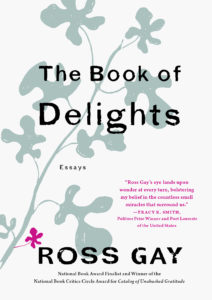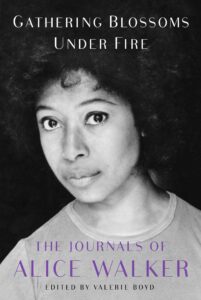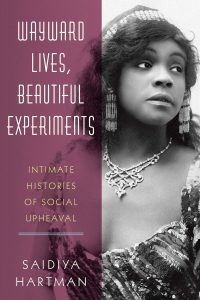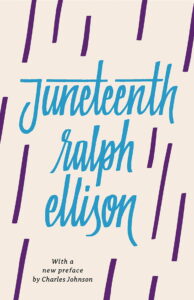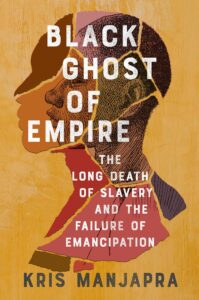
The Creative Rebellion of Black Liberated Life: A Reading List for Juneteenth
Kris Manjapra on Ross Gay, Alice Walker, Ralph Ellison, and More
Juneteenth is for celebration. We celebrate the vitality and creativity of Black people, individually and collectively. But it’s a complicated kind of celebration, because it asks us to recognize that America’s democracy is structured by racial caste hierarchies—a matrix of exclusions, privileges and unequal life-chances derived from ideas about racial difference, and rooted in our nation’s history of slavery and colonialism.
In fact, the US slavery emancipation of 1865 was designed to despoil the full freedom of Black people, and to reimpose forms of captivity—from bonded labor, to the prison cell, to the redlined neighborhood.
My book, Black Ghost of Empire: The Long Death of Slavery and the Failure of Emancipation, explores the ways that emancipation processes in the United States and around the world each conspired to pay reparations to slave-owners—and to continue the racial caste system. But it is also a book about how Black communities have always resisted captivity and oppression in the midst of systemic racism. We have done so through the work of the heart and the mind, and as part of beloved communities.
Recognizing the prevailing conditions of anti-Black violence in America, these five books help us understand the arrangement of American racial democracy as it stands, while also championing the power that Black creative expression has in dismantling this system. In a world that is furnished by deadly histories of racial violence, these books announce the ongoing, joyful, creative rebellion of Black liberated life.
*
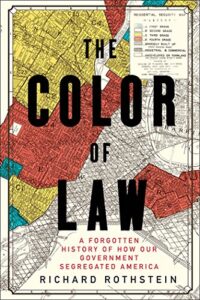
Richard Rothstein, The Color of Law: A Forgotten History of How our Government Segregated America
America’s racial democracy not only preserves residue from its segregationist past, but it actively reproduces segregations, generation by generation, through law and policy. Rothstein shows us that the Civil Rights Act of 1866, during Reconstruction, already banned racial housing discrimination—yet racial unmixing in housing has continued and expanded across the entire United States. Through racist laws, policies, and processes designed by different branches and levels of government, African Americans have been increasingly disinherited of generational wealth. Black families have been barred from equitable access to good housing, and to what accompanies it, including access to good education, good nutrition, and good healthcare. We do not only inherit our social discontents. We actively reenact them.
Ross Gay, The Book of Delights
Ross Gay, the celebrated Black poet and lover of gardens and farmland, gifts us this collection of essayettes. He begins with the insight that the more we study delight, the more delight there is to study. Gay embarks on his discipline of delights in the midst of, and not as escape from, the conditions of America’s racial democracy. This book is about the wonders of everyday experience as witnessed and cherished by a Black man walking in this disfigured world.
Alice Walker, Gathering Blossoms Under Fire
This is an autobiography of massive creativity: a day-by-day exploration of art-making, sensuality, and erotic life by one of the most important Black women authors of our time. Alice Walker, in these collected journal writings, finds so many careful and precise words to handle the subtle and profound treasures of self-exploration and self-liberation. Amidst the turmoil of her time—and her local, national, and international activism—Walker makes clear that freedom-struggle has a double track, always playing out in the world outside and the world within.
Saidiya Hartman, Wayward Lives, Beautiful Experiments: Intimate Histories of Riotous Black Girls, Troublesome Women and Queer Radicals
As America entered the First World War, it also redoubled its internal war against African Americans through the spread of Jim Crow across the South. Saidiya Hartman tells the stories of hundreds of anonymous Black girls and women who subsequently escaped Southern segregationism, sharecropping, and terrorization campaigns for the cities of New York and Philadelphia. During the Great Migration, Black people rebelled against Jim Crow by the millions.
But discrimination, ghettoization and gendered labor regimes of bondage—new kinds of plantations—awaited them up North, too. Hartman shows us how riotous Black girls created openings of freedom and set off sparks of liberation through their desires and curiosity. They stole pleasures. They conjured “too-much” beauty amidst the conditions of scarcities and servitude. This epic urban history is shot from the perspective of an immersed camera, perched at shoulder-height in the irreverent crowd of Black girls and women.
Ralph Ellison, Juneteenth
In this jubilant, allegorical novel, Ellison explores the possible meanings of Juneteenth. He worked on the novel for over 40 years, and it was left incomplete at the time of his death. This edition, reconstructed by John Callahan, first appeared in 1999, and was republished in 2021. The novel presents Juneteenth as an opportunity to re-imagine America’s democracy—to reckon with our agonizing past of broken faith and broken relationships as a way of reconstruction reciprocity today. Ellison leaves us with a Juneteenth riddle: “How the hell do you get love into politics and compassion into history?” The author insists that it will take a leap of the imagination and of the spirit, and a willingness of those who have generationally benefitted from America’s racial caste system to study themselves and their historical conditions with honesty.
___________________________________
Black Ghost of Empire by Kris Manjapra is available from Scribner
Kris Manjapra
Kris Manjapra was born in the Caribbean of mixed African and Indian parentage. He grew up in Canada and completed his undergraduate and graduate degrees at Harvard. He has lived in the USA ever since. He is a professor of history at Tufts University, and a recipient of the 2015 Emerging Scholar Award by Diverse magazine. He has held fellowships at the Berlin Institute for Advanced Study, at the Radcliffe Institute for Advanced Study, and at UCLA. The author of Black Ghost of Empire, he has also written Colonialism in Global Perspective, Age of Entanglement: German and Indian Intellectuals Across Empire, M.N. Roy: Cosmopolitanism and Colonial Marxism, and Cosmopolitan Thought Zones of South Asia.









